FRANCKEN - ALLEGORY ON THE ABDICATION
OF EMPEROR CHARLES V IN BRUSSELS - PAGE 2
|
Caligula the Cruel |
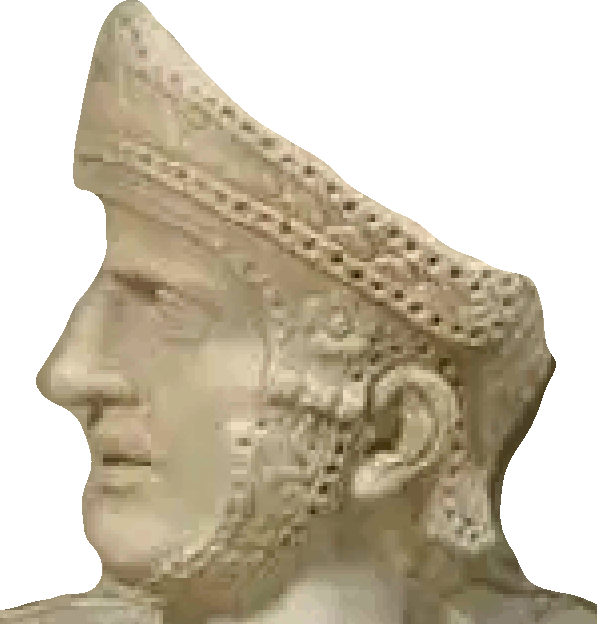
Narcissism at its Worst
|
- Caligula was the third Roman emperor
to rule in the Julio-Claudian Dynasty which presided from 27 BC to 68 AD.
- This dynasty endured the rule of
his relatives; Augustus, Tiberius, Claudius, and Nero.
- The Romans were at their height of power, wealth, and art
and it was a time of prosperity.
- Realizing that most of what we think we know about Caligula comes from accounts, both ancient and modern,
that did not come from any historical record.
|
I have existed from the morning of the world and I shall exist until the last star falls from the night. Although I have taken the form of Gaius Caligula, I am all men as I am no man and therefore I am a God.
(Caligula)
|
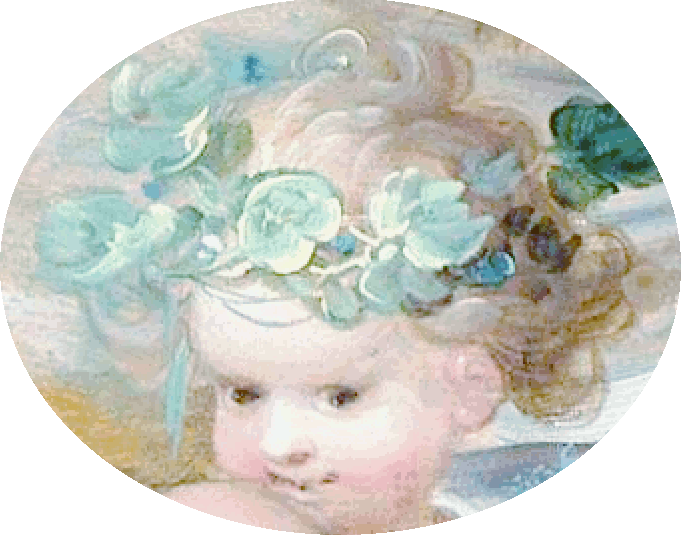
Caligula a Caesar |
- Gaius Julius Caesar Germanicus (12AD-41AD) was the son of Roman general Germanicus and Agrippina the Elder, members of the first ruling family of the Roman Empire.
- His father was the adoptive son and heir of Emperor
Tiberius and he was also a grandson of Mark Antony.
- Agrippina was the daughter of Marcus Vipsanius Agrippa and Julia the Elder, making her the granddaughter of Augustus.
|
The reign of Roman Emperor Caligula involves a descent
into murder and madness.
(hatmuse.com)
|

Germanicus |
-
Caligula was the youngest son of Germanicus (15 BC-19 AD), the rising star of the imperial dynasty, and part of a revered family, which combined celebrity glamour with monarchy and a cult of personality.
- Germanicus was a respected, immensely popular figure among his troops and Roman civilians of every class, and was widely expected to eventually succeed his uncle Tiberius as emperor.
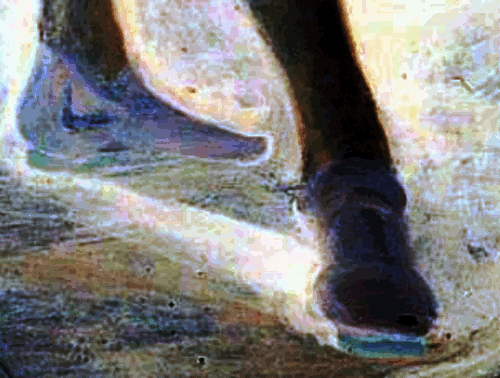
Little Boots |
-
Caligula was born on August 31 in the year 12 AD in Antium
in Italy.
- His nickname 'Caligula' means 'Little Boots' and was given
to him by soldiers because his father would take him to
events dressed in military gear when he was a child.
- Caligula later
grew to dislike the nickname and insisted on the given name he shared with a famous ancestor; Gaius Julius Caesar.
|
As the youngest in this Roman pantheon, he was the ‘chick’, the darling, the mascot. The name Caligula, or ‘Little Boots’, came from adoring soldiers to whom Germanicus liked to display his son dressed as a miniature Roman legionary.
(historyextra.com)
|
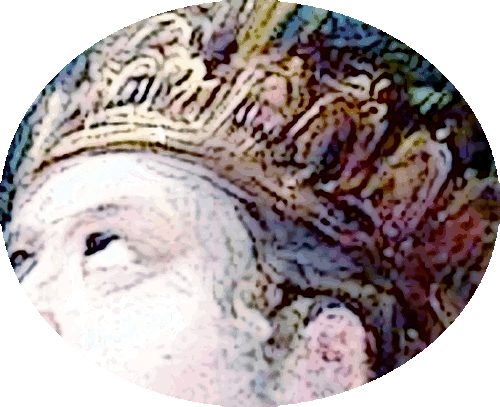
Agrippina the Elder |
- Germanicus was loved by the citizens of
Rome and when he died in 19 AD at age 33, they had great hope that Caligula
would follow in his footsteps.
- When he fell ill,
Germanicus was
convinced that he had been poisoned by the provincial
governor, although, many believed he had been murdered at
the behest of Tiberius because he considered him a
rival.
|
Tiberius believed himself under constant threat from treason, conspiracy and political rivalry. He forbade Agrippina to remarry, for fear that a remarriage would serve her personal ambition, and introduce yet another threat to himself.
(Wikipedia)
|
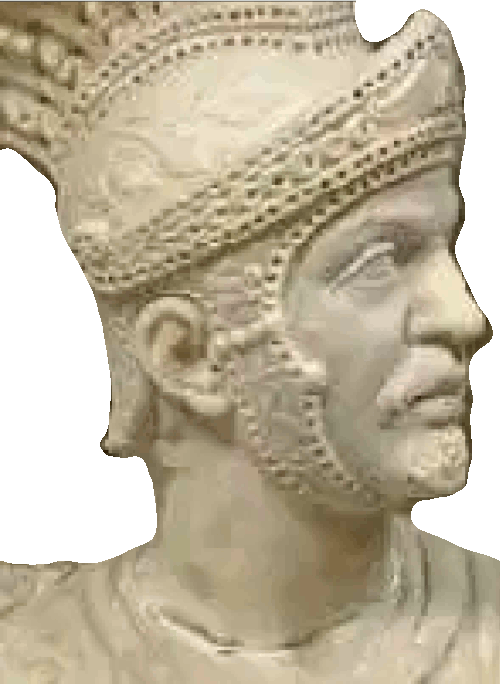
Tiberius |
- Germanicus' biological uncle and adoptive father, Tiberius, was consumed with paranoia often exiling those he considered threats and starting treason trials.
-
In the year 30, when Caligula was 18, Tiberius had his brothers, Drusus and Nero, declared public enemies by the Senate, and exiled.
- Caligula and his three sisters remained in Italy as hostages of Tiberius, kept under close watch.
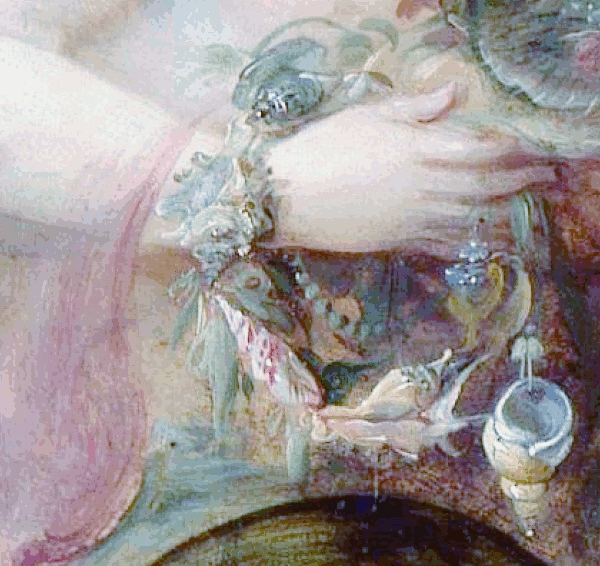
Agrippina passes |
-
In 33 AD, Caligula's mother and his brother Drusus died, while still in exile
- Some historians believe that Tiberius orchestrated the deaths of Caligula’s mother and brothers.
- As a result, Caligula lived in a tense place always having to tip-toe around the paranoid emperor or else
possibly suffer his wrath.
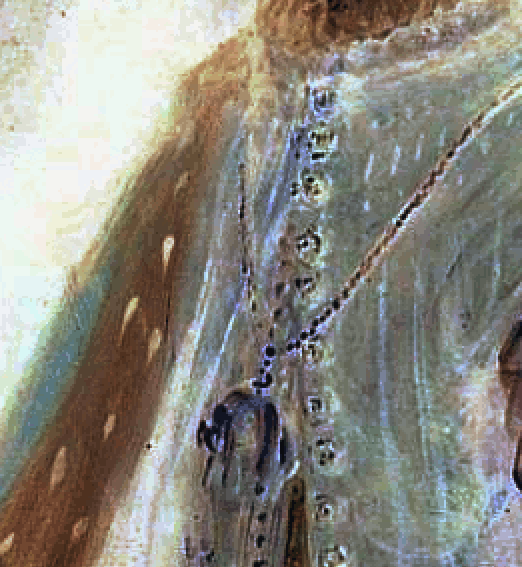
Cultured and intelligent |
-
During this time Caligula was described as a first-rate orator, well-informed, cultured and intelligent.
- He was a natural actor and recognized the danger he was
in, and hid his resentment of Tiberius' maltreatment of
himself and his family.
|
Behind such an obsequious manner that it was said of him that there had never been "a better slave or a worse master".
(Wikipedia)
|

Youthful mask |
- Caligula's failure to protest the destruction of his
family is taken by Tacitus as evidence that his 'monstrous
character was masked by a hypocritical modesty.'
-
Although, if he
had protested it would have more than likely cost him
his life.
- Tacitus is widely regarded as one of the greatest Roman historians by modern scholars.
|
I wish that the Roman people had but one neck that I might cut it off.
(Caligula)
|
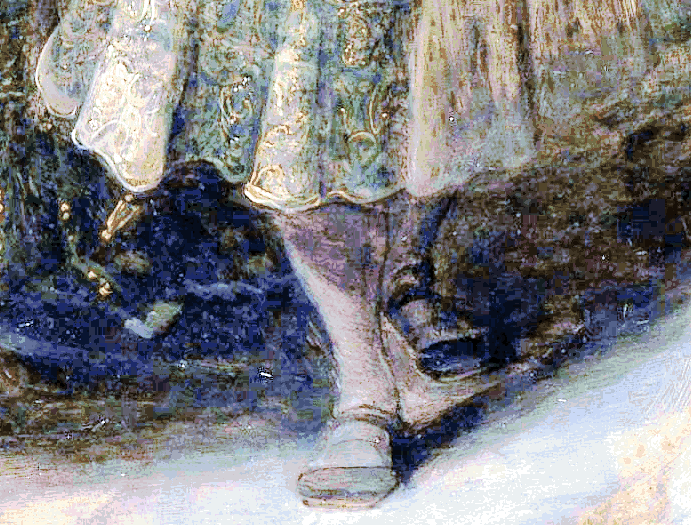
Junia Claudilla |
- Tiberius arranged the marriage of Caligula and Junia Claudilla, daughter of one of Tiberius' most influential allies in the Senate.
- Junia died in 34 AD in childbirth along with her baby.
- Meanwhile,
Caligula was kept busy in very junior senatorial post until his sudden nomination as emperor.
|
In 26
AD, Tiberius withdrew from public life to the island of Capri, and in 31, Caligula joined him there. Tiberius died in 37, and Caligula succeeded him as emperor, at the age of 24.
(Wikipedia)
|
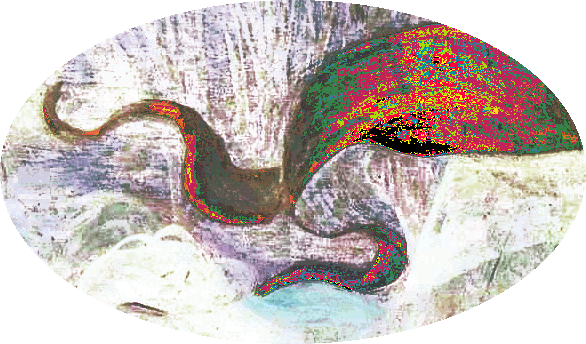
Coming to power |
-
In 35 AD, Tiberius named Caligula as joint heir with
Tiberius' grandson, Gemellus, who was Caligula's junior by seven years and not yet an adult.
- Tiberius was genuinely fond of Gemellus, but doubted his personal capacity to rule and feared for his safety should Caligula come to power.
- Despite his own harsh reputation, Tiberius knew that
Caligula had an evil streak and many believed he would have
eliminated Caligula if he had survived longer.
|
Suetonius claims that Tiberius, ever mistrustful but
still shrewd in his mid-70s, saw through Caligula's
apparent self-possession to an underlying "erratic and
unreliable" temperament, not one to be trusted in
government; and he claims that Caligula took pleasure
in cruelty, torture, and sexual vice of every kind.
(Wikipedia)
|
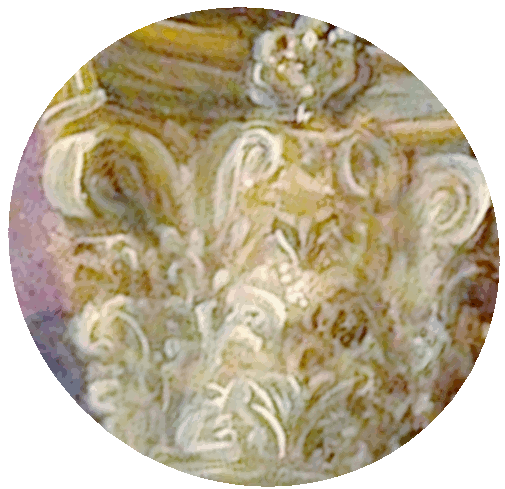
Corinthian Order |
-
Caligula reigned from March 37 AD until his death in January 41
AD.
- Despite his rocky upbringing, upon Tiberius’ death, Caligula seemed like
he got off to a good start.
- For many Romans, their new emperor was fulfilling their expectations
and in the beginning, he was a breath of fresh air.
|
He was said to have rained coins down to the Roman people and brought back public games. He also burned his predecessor’s treason trial papers and welcomed back the exiled.
(historyextra.com)
|
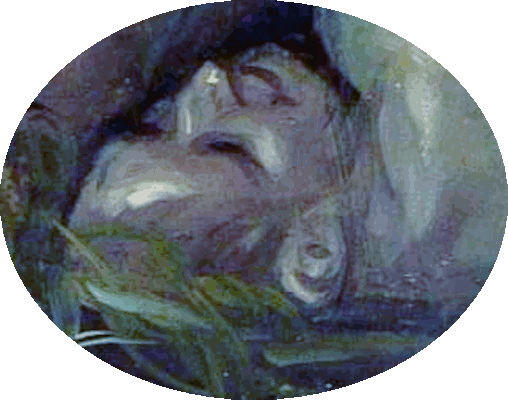
Sickness |
- Caligula fell ill
7 months after
he took reign, and the cause of his illness is still
not known.
- Many Romans feared the worse during their emperor’s illness and they began grooming a successor.
- Caligula recovered, at least physically, but mentally, he became unhinged.
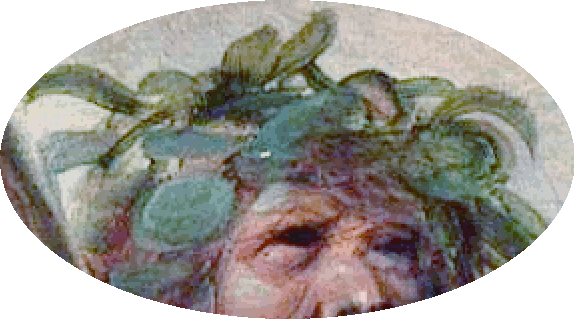
Irrational behavior |
-
In short time, Caligula became known for his extravagant and
sometimes irrational behavior.
-
Though he ruled Rome as Emperor for only four years, he has been immortalized as one of history’s most cruel and erratic leaders.
|
"nursing a viper for the Roman people."
(Tiberius
quoted by Suetonius)
|
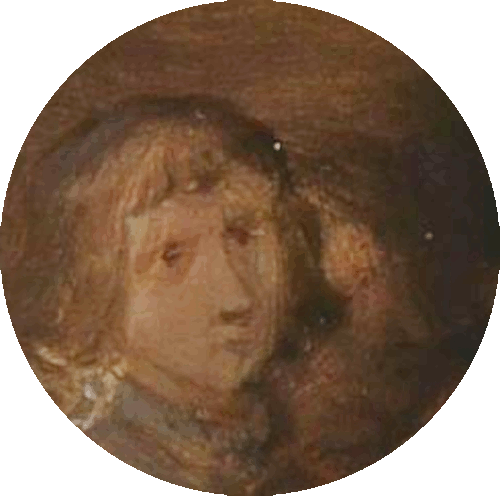
Citizens in fear |
-
Following his illness, Caligula felt betrayed by the Romans
because they were ready to replace him.
- From tormenting Romans, paranoia, to increased vanity,
Caligula began a reign of unforgiveable cruelty.
- Just like his predecessor Tiberius, paranoia festered in the emperor
and he became murderous.
|
Suetonius, a Roman historian who lived from about 69 AD to 122 AD.
(ancient-origins.net)
|

Head of the Praetorian Guard |
- Caligula restored the treason trials
that Tiberius had been famous for and executed enemies
and allies alike, in fact, he executed, Macro, the head of the Praetorian Guard
in 38 AD.
- Ironically, he had been close to Macro who
helped to ascend to Emperor.
- When you start killing off your own bodyguards, you know things are bad,
especially bodyguards that actually protected you.
- He
also executed Tiberius Gemellus, grandson of Tiberius, who
he had jointly ruled with under Tiberius oversight.
|
Remember that I have the right to do anything to anybody.
(Caligula)
|

Wives of his officers |
- There were multiple affairs with his allies’ wives
during his reign, and he had incestuous feelings towards his
own sisters.
- Some scholars believe that he intended to establish a Hellenistic-type monarchy after the brother-sister marriages of the Ptolemies of Egypt.
|
He made pretensions to divinity and showed extravagant affection for his sisters, especially for Drusilla, who on her death (in 38) was consecrated Diva Drusilla, the first woman in Rome to be so honoured.
(Britannica)
|
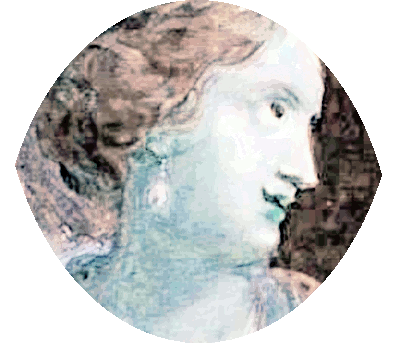
Bride |
-
Suetonius claimed that Caligula honored the wedding of Livia Orestilla with Gaius Piso with his presence.
- Caligula was to utter these words to Piso while participating in the wedding feast; “Don’t take liberties with my wife.”
- Then he immediately abducted the bride Livia from the feast.
- The next day, he announced in a public announcement that
'he had got himself a wife in the manner of Romulus and Augustus.'
- Romulus kidnapped Sabine, and August took Livia as his wife, who was already married.
|
Suetonius, a Roman historian, describes different accounts of Gemellus's death, including one where Caligula had him killed shortly after becoming emperor. Caligula also had his three sisters, Drusilla, Julia Livilla, and Agrippina the Younger, exiled and then killed.
(Assistant)
|
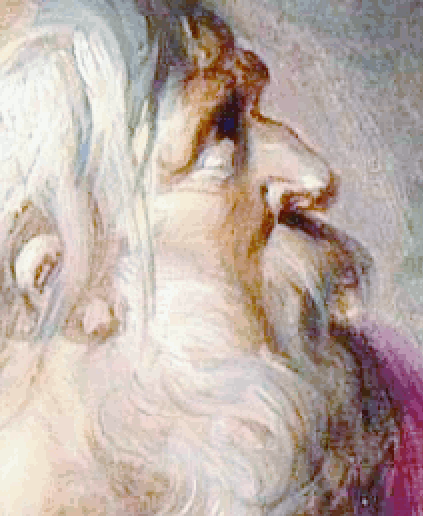
Caligula struck down a priest |
-
Caligula fueled his bloodlust with gladiator and chariot battles.
- Often, he upped the stakes by throwing in exotic animals and criminals.
- In addition, during a religious sacrifice, instead of
killing an animal, Caligula struck down a priest.
- Of
the few surviving sources about Caligula and his four-year
reign, most were written by members of the nobility and
senate, long after the events they purport to describe.
|
For the early part of his reign, he is said to have
been "good, generous, fair and community-spirited" but increasingly self-indulgent, cruel, sadistic, extravagant and sexually perverted thereafter, an insane, murderous tyrant who demanded and received worship as a living god, humiliated the Senate, and planned to make his horse a consul.
(Wikipedia)
|
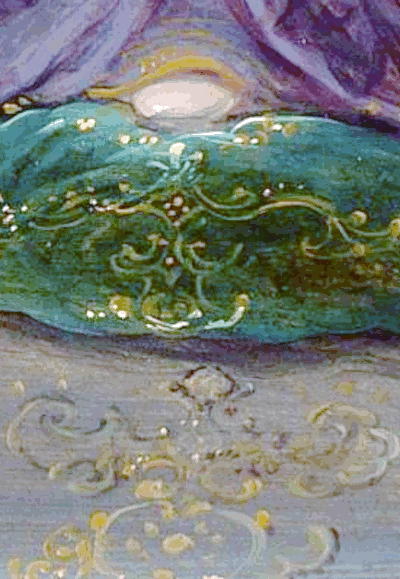
Caligula's very important boot |
- Caligula’s cruel personality was paired with award-winning narcissism.
- In his mind, he was a god, so therefore he
believed, it was only fitting that he live like one.
-
As a result, he did whatever he wanted and most of it was
not good.
- He also flaunted his looks and thought of himself as extremely
good-looking but apparently others didn't always feel the same way.
|
He was
very tall and extremely pale, with an unshapely body and very thin neck and legs. His eyes and temples were hollow, his forehead broad and grim, his hair thin and entirely gone on the top of his head.
(Suetonius)
|

The real Caligula |
- Caligula wasn’t good looking, just the opposite, he was
a first-rate ghoul and he knew it.
- As a result, he wanted
all portraits to depict him as better looking than he
actually was
and he wanted to hide his baldness.
- He forbade anyone to gaze upon his hairless head, or to mention a goat in his presence
because apparently he resembled one.
- To accentuate
his cruelty and spread fear, Caligula is described as having
practiced looking evil to scare his subjects.
|
He
purposely made [his face] even more savage, practicing all kinds of terrible and fearsome expressions before a mirror.
(Suetonius)
|
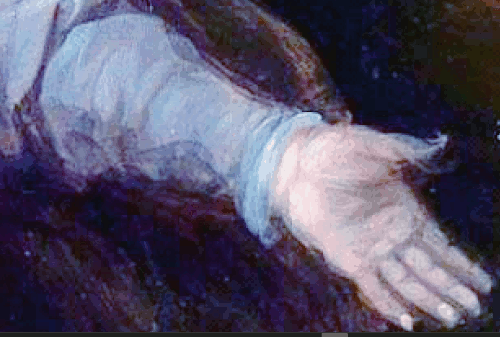
Caligula higher taxes and extortion |
- By living extravagantly, he quickly depleted the royal treasury
and the Romans faced higher taxes and extortion to pay for
everything.
- He quickly squandered the vast sums Tiberius had accumulated in the state treasury.
- To procure the revenues needed to finance his extravagances, he then resorted to the extortion of prominent Roman citizens and the confiscation of their estates.
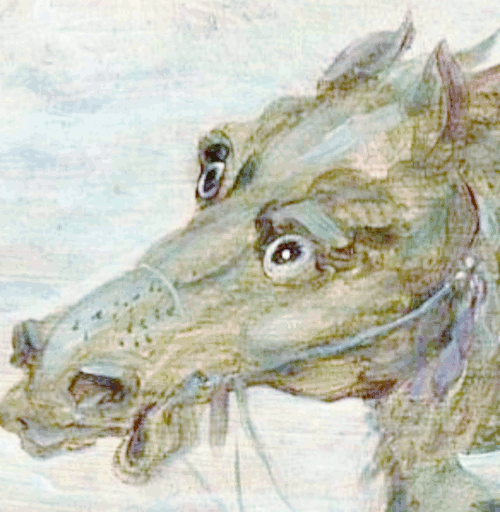
Cal's Horse Incitatus |
- Adding to the crazy, he was so self-absorbed that he
planned on promoting his favorite racehorse, Incitatus
(Swift), to a
high office.
- Supposedly, Caligula proclaimed himself a living god and his appointment of his horse, Incitatus, as consul.
- This could have been an extended joke, created by Caligula himself in mockery of the senate
in reference to the 'promotion of incompetents' especially in
politics.
- He tormented senators making them run for miles in front of his chariot.
|
The gesture attributed to Caligula didn't just suggest a prank. It was graphic way for Caligula to express his contempt for the Roman Senate. It was a way of proving that he could not merely bend the Senators to his will, but he could humiliate them as well.
(newsweek.com)
|
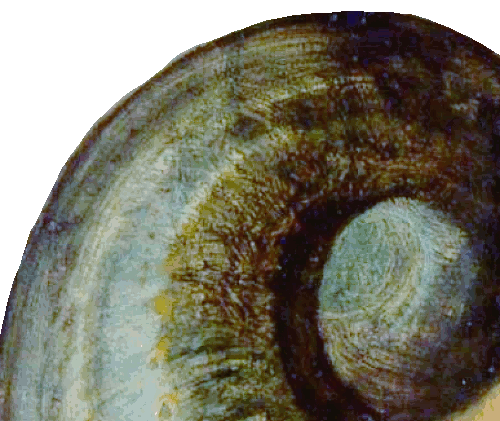
Strange bridge to nowhere |
-
Caligula built a 2-mile floating bridge across the Bay of Naples with boats from Baiae to Puteoli in the summer of 39
AD just so he could gallop across it.
- It was a temporary floating bridge and employed a double line of ships as pontoons
at either end.
-
Any practical purpose for the bridge is unclear and some believe that it might have been intended to mark Caligula's attempted invasion of Britain.
|
A two-day ceremonial was performed, with offerings to the sea-god Neptune and Invidia (Envy), and a satisfactory result, in that the sea remained completely calm. The bridge was said to rival the Persian king Xerxes' pontoon bridge across the Hellespont.
(Wikipedia)
|
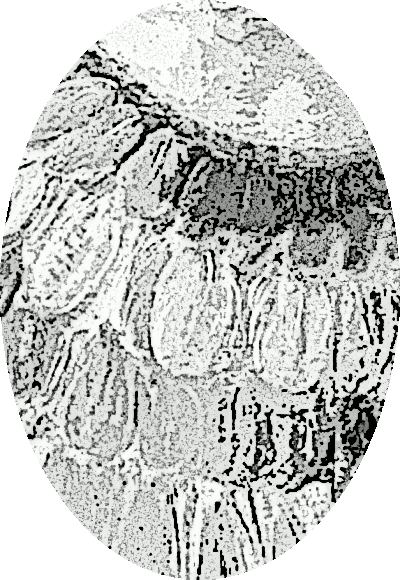
Breastplate |
- For the opening ceremony, Caligula donned the supposed breastplate of Alexander the Great, and rode his favorite
horse, Incitatus, across the bridge.
- On the second day, he rode the bridge several times at full
speed accompanied by the soldiers, famous nobles and hostages.
|
Seneca and Dio claim that grain imports were dangerously depleted by Caligula's re-purposing of Rome's grain ships as pontoons.
(Wikipedia)
|
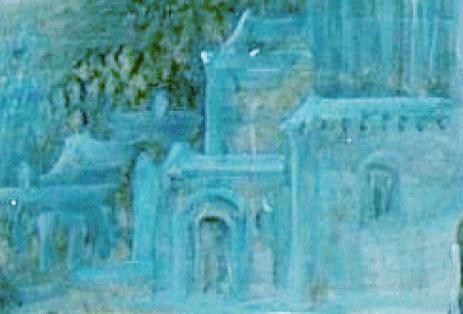
Capitol |
- The Capitol, from Mount Palatine
and the 'Seven hills of Rome.'
- Caligula is associated with both the Capitol (Capitoline Hill) and the Palatine Hill in Rome.
- He built a bridge connecting his palace on the
Palatine Hill to the Temple of Jupiter on the Capitol
showcasing his power and divine association.
- This bridge allowed him to conveniently access the temple
and display his divinity.
|
Caligula's palace, known as the Domus Tiberiana, was located on the Palatine Hill, and his rule was marked by excesses and cruelty, eventually leading to his assassination.
(Suetonius)
|
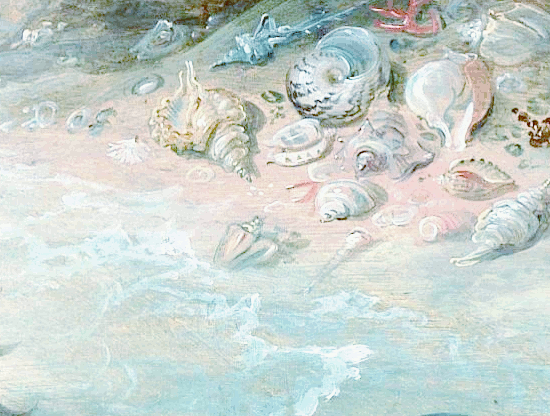
Seashells by the sea shore |
-
In 40 AD, Caligula took his army into Gaul (France), on his
way to a rampage.
- He marched his troops to the northern shoreline of Gaul as a prelude to the invasion of Britain but then ordered them to collect seashells there, which he called the spoils of the conquered ocean.
|
Finally, as if he intended to bring the war to an end, he drew up a line of battle on the shore of the Ocean, arranging his ballistas and other artillery.
(Suetonius)
|
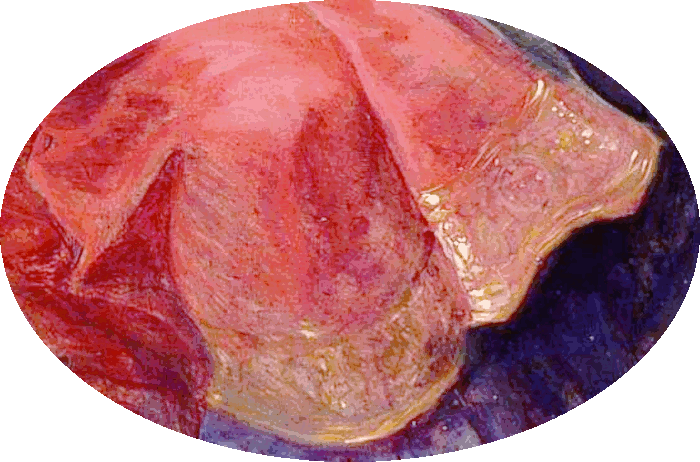
Folds of their gowns |
- Nobody knew what he was about to do.
- Caligula
suddenly bade them gather shells and fill their helmets and
the folds of their gowns, calling them "spoils from the
Ocean, due to the Capitol and Palatine."
- Then he told
them
"Go your way happy; go your way rich."
- The iconic
French Phrygian cap is a symbol of freedom and the Phryges were a vibrant tribe of red characters with a rich history.

Red haired |
- Turning his attention to his triumph, in addition to a few captives and deserters from the barbarians he chose all the tallest of the Gauls, and as he expressed it, those who were "worthy of a triumph," as well as some of the chiefs.
- These he reserved for his parade, compelling them not only to dye their hair red and to let it grow long, but also to learn the language of the Germans and assume barbarian names.
|
He also had the triremes in which he had entered the Ocean carried overland to Rome for the greater part of the way. He wrote besides to his financial agents to prepare for a triumph at the smallest possible cost,82 but on a grander scale than had ever before been known, since the goods of all were at their disposal.
(Legamen ad paginam Latinam)
|
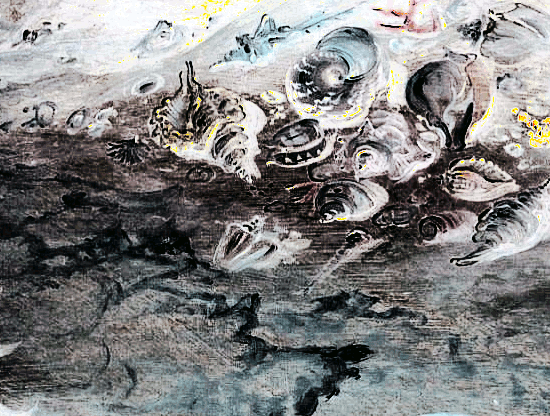
Clean up required |
- Next he ordered the construction of a lighthouse and promised the army a
payment of one hundred denarii per man.
- The sources for this story are ancient historians Suetonius, Cassius Dio and Aurelius Victor.
- Sand without lime - Caligula.
- Some of Suetonius reports are very doubtful given that he's basically the Roman equivalent of the
Daily Mail or National Enquirer.
|
Before departing for Rome, he determined to punish two legions, identifiable as I and XX, ostensibly for their role in the mutiny following the death of Augustus in AD14, although there could have been few, if any, of the men involved in that incident still serving. His first inclination was to slaughter them wholesale but he then decided upon decimation. However, when they showed signs of resistance, he fled.
(ad43.org.uk)
|
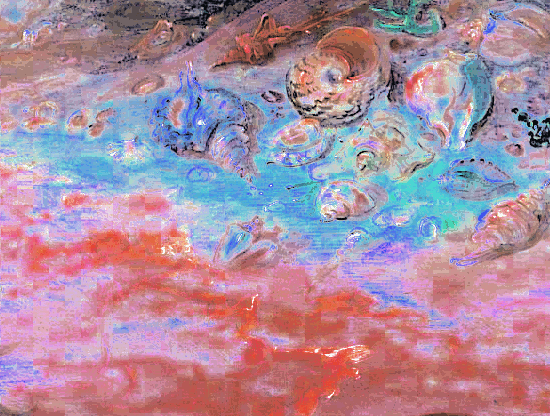
Caligula
seashells are spoils of war |
- Caligula planned to invade Britain but, instead of attacking and fueled by madness, he ordered his soldiers to randomly stop and gather seashells which humiliated his troops.
- Apparently, in his mind, shells were 'spoils of the
war' from conquering the ocean.
- Ancient sources offer little assistance as to why the proposed invasion of Britain came to nothing, despite these extensive preparations and the vast accumulation of men and
materials.
|
Seeing that some of the legionaries, suspecting his purpose, were stealing off to resume their arms, in case any violence should be offered them, he fled from the assembly and set out for the city in a hurry, turning all his ferocity upon the senate, against which he uttered open threats, in order to divert the gossip about his own dishonour. He complained among other things that he had been cheated of his fairly earned triumph; whereas a short time before he had himself given orders that on pain of death no action should be taken about his honours.
(Legamen ad paginam Latinam)
|
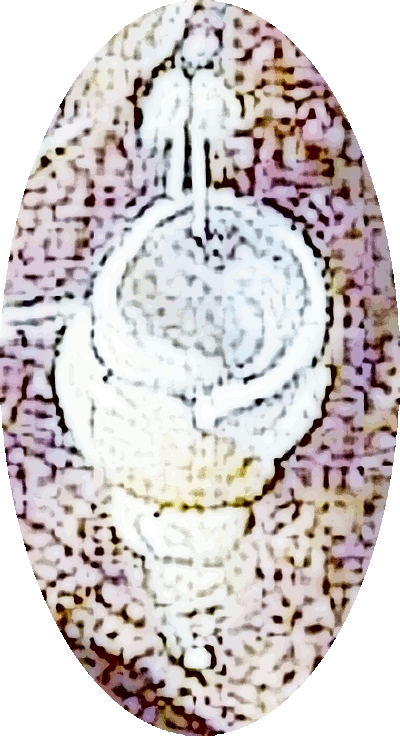
Exploring the Beauty of Seashell-Inspired Toilets |
- One of Caligula's last acts occurred in 40 AD when he
ordered a statue in his image.
- With ‘divine’ goals, Caligula ordered the construction
of the statue to be erected in the Temple at Jerusalem.
-
In the movie Demolition Man, the use of the three seashells as a substitute for toilet paper is one of the film's many futuristic and humorous elements.
|
Sometime after Demolition Man was released, Sylvester Stallone revealed that a screenwriter on the film had explained to him how to use the three seashell.
(r/FanTheories as substitution for toilet paper)
|
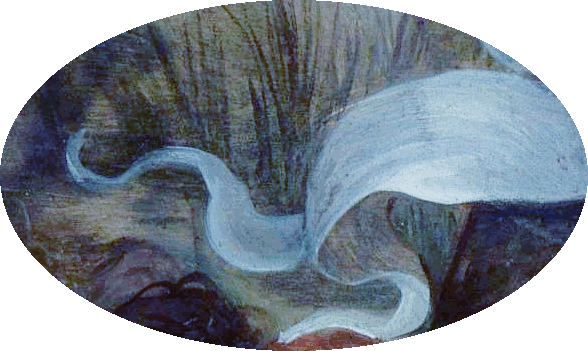
Toilet paper |
- The joke is further played on when Stallone's character, John Spartan, gets the toilet paper he's looking for by issuing a series of curses to the machine and uses the resulting tickets to wipe
up.
|
The concept is often seen as a satirical take on the absurdities of future technology and societal norms. It plays into the film's broader themes of a sanitized, overly controlled society where even basic human functions are subject to strange new rules.
(Assistant)
|
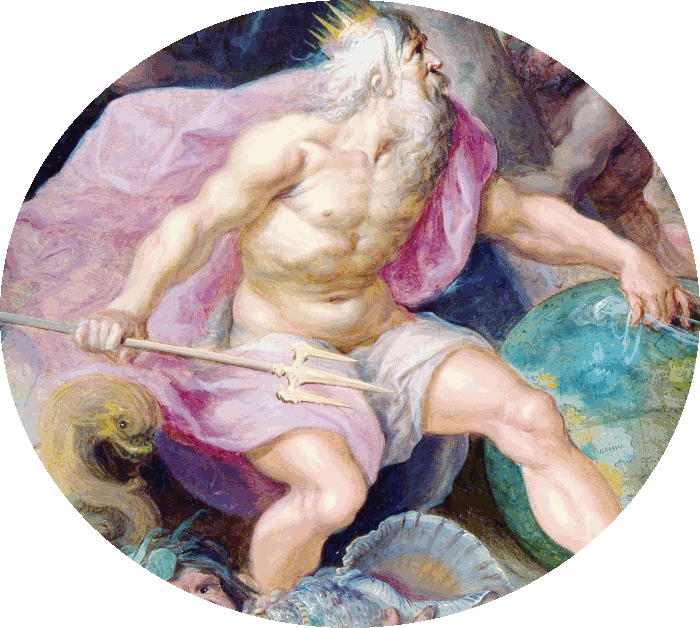
Neptune, Roman god of Freshwater |
-
Was this was a spiritual
attack (curse) on the Roman god Neptune (Poseidon to Greeks)?
- Neptune is often depicted in artwork concerning Rome.
- Everything you do with your mouth is black magic if used
the wrong way.
- Watch the water.
|
Neptune, the Roman god of the sea and freshwater, possesses significant powers, primarily centered around water and marine life. He could control all bodies of water, summon storms and tidal waves, and even cause earthquakes due to his temper. He wields a trident with magical properties, allowing him to create new bodies of water, smash rocks, and generate waves.
(Assistant)
|
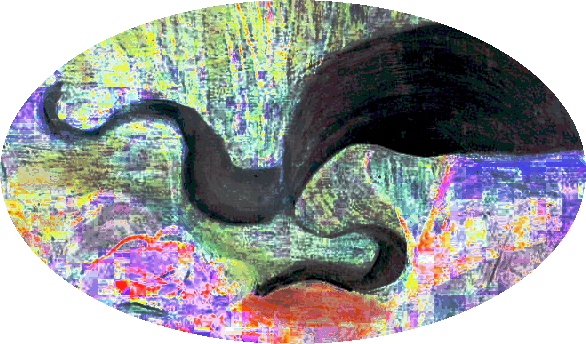
Octopus
or snake? |
- Some argue that seashells is a mistranslation of the word conchae, which was also used to describe British enemy ships captured in the English Channel,
- The ships were transported back to Rome to be included
in a triumphal procession to parade the captured treasures,
prisoners and other symbols of victory after war.
|
These kinds of stories continue to perpetuate the misreading of Caligula’s memory in the present day.
(David Woods)
|
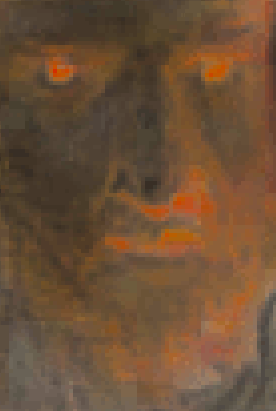
Caligula assassinated |
- Caligula died on January 24, 41 AD after he was assassinated by members of the Praetorian Guard,
who were in collusion with the Senate.
-
They ambushed him and stabbed him to death in the Palatine
tunnels (shaft) because of
discontent among senators and soldiers.
- His murder took place within the Palatine Hill during
the Palatine Games, highlighting the tension and instability that marked his rule.
|
Caligula was going to the palace, he encountered members of the Praetorian Guard – participants in the conspiracy. They had previously made sure that the emperor separated himself from his entourage. The conspirators detained the emperor and asked for the password of the day. This was the signal to attack. The praetorians led into the plot and struck Caligula with thirty blows. Apparently, they aimed not only at the neck and chest but also at the genitals. (imperiumromanum.pl)
|
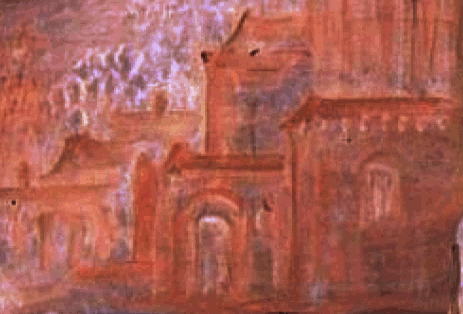
Imperial palace |
- The murder of Caligula was only the beginning of the slaughter in the imperial palace.
- Conspirators also murdered his wife Cezonia and his little daughter Drusilla
after her head was brutally smashed against the wall.
-
They also killed several other people including members of the Germanic guard responsible for the immediate protection of the emperor.
- Afterwards, they searched the palace and murdered anyone they considered guilty.
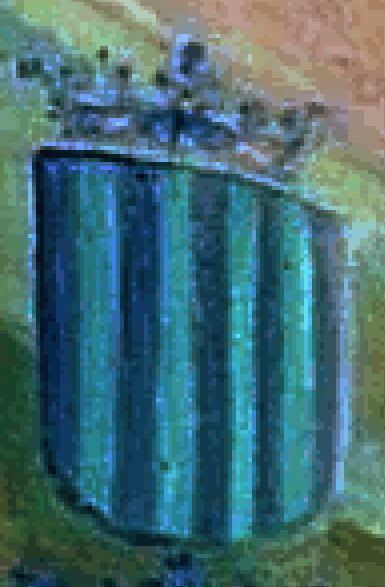
Guard up |
- Historian Suetonius cited the main reason for the
assassination was Caligula mocking one of the guards,
Cassius Cherea, who had a womanly voice.
- Caligula chose
to humiliate and mock the guard and it didn't end well.
- Truthfully, he was hated by the citizens, soldiers and
senate.
|
When Cherea was on duty in the palace, Caligula allegedly gave an erotically colored and “witty” (in his opinion) password of the day, which was supposed to further humiliate Cherea: e.g. “Priapus” or “Venus”. When he was giving Cherei a ring to kiss, Caligula obscenely straightened one of his fingers at the last moment. It is these circumstances that make Cherea have reasons not only to kill the emperor but also to torment his corpse and massacre his genitals. (imperiumromanum.pl)
|

Roman wheat
in the shaft |
- By a strange coincidence, the three most important
political figures of that day: Valerius Asiaticus, Marcus Vinicius and Claudius separated from Caligula at the crucial moment to stay at a safe distance from the bloody events.
- All three of them, immediately after the murder of Caligula, claimed the throne: Valerius and Vinicius in the Senate, and Claudius
as Emperor.
|
Priapus is a minor god in Greek mythology,
particularly associated with fertility, gardens, and
male genitalia. He is often depicted with an oversized
phallus, a characteristic that also gave rise to the
medical term "priapism" (prolonged erection). Priapus
was also the protector of livestock, fruit plants, and
was seen as a guardian against evil eyes and thieves,
especially in gardens. (Assistant)
|
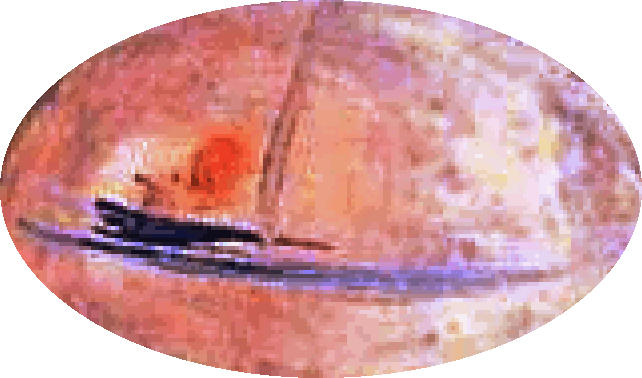
Red sea |
-
Whoever was involved in the plot ultimately only Cherea and his immediate accomplices paid with their heads for killing the emperor.
- Others, probably many higher-ranking conspirators, made sure that history did not remember them as murderers.
|
Are we really to believe that Caligula was killed in a plot by a few praetorians? Could it be that the Senate, which had every reason to hate Caligula, knew nothing about it? I am afraid that the image presented by Suetonius sins with naivety. (imperiumromanum.pl)
|
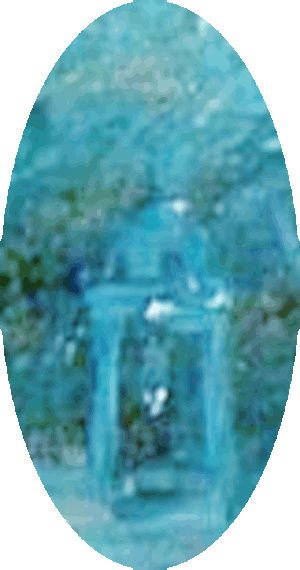
Lighthouse |
- Some recent construction artifacts found in France suggest
that Caligula may have built a fort along the Lower Rhine in
France, that could have been used as a port in his plan to
invade Britain.
- Additionally, he also built a
lighthouse in Boulogne that appeared to be for the same
purpose.
- As it was, Caligula was assassinated in January 41 but the infrastructure was available to be exploited by Claudius for his invasion in 43.
|
Scholarly opinion as to the meaning of all this is, to say the least, divided. It has been argued that the events took place on the Channel coast in connection with the proposed invasion of Britain or on the coast of the Lower Rhine in relation to operations against the Canninefates, or that they did not involve active hostilities at all but were military manoeuvres, an inspection of equipment,
ceremonies connected with the surrender of the British
prince Adminius or even a symbolic battle with the sea.
(ad43.org.uk)
|
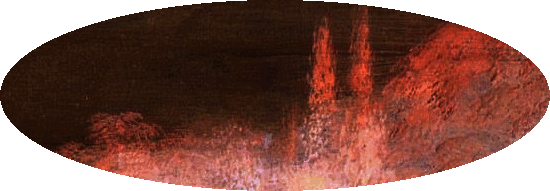
Nero |
- He was replaced by Claudius, his paternal uncle, who was
later poisoned by
his wife and replaced by her son Nero.
- Caligula's death marked the official end of the Julii Caesares in the male line, though the Julio-Claudian dynasty continued to rule until the demise of Caligula's nephew, the Emperor Nero.
|
This is the Trump effect: if I were to use historical parallels, even if they are somewhat or very overstretched, imagine someone like Nero or Caligula. These are almost semi-crazed, semi-possessed rulers who find themselves at the helm of a state with enormous influence and lack any checks and balances, as unfortunately seen in America today. Such a person can make any decision they deem necessary.
(Yaroslav Hrytsak, a historian and professor)
|

Dark flags |
- In 68 AD, Gaius Julius Vindex, a Roman senator and governor of Gallia Lugdunensis, revolted against Emperor Nero.
- Vindex declared Nero a public enemy, and he was sentenced to death in asentia.
- Nero fled Rome and committed suicide, and was replaced by Galba, who didn't last very long.
- This began a period of civil war known as the Year of the Four Emperors.
|
The "Year of the Four Emperors" refers to AD 69, a period of intense civil war within the Roman Empire where four emperors ruled in succession: Galba, Otho, Vitellius, and Vespasian. This tumultuous year followed the suicide of Emperor Nero and marked the transition from the Julio-Claudian dynasty to the Flavian dynasty.
(Assistant)
|
|
Flavian Dynasty |
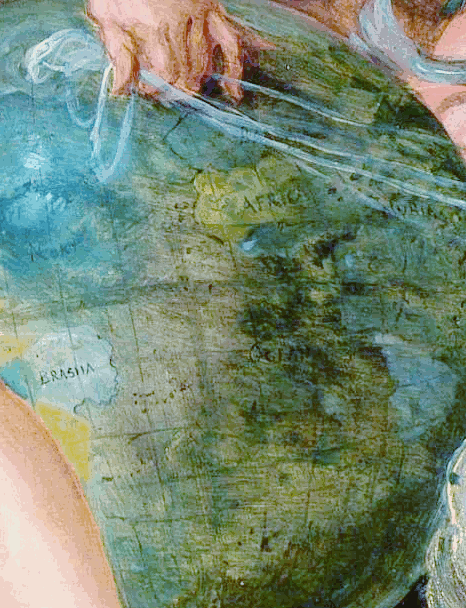
New hands on the reins |
-
The Flavian dynasty, 69 to 96 CE, was the second dynastic line of emperors to rule the Roman Empire following the Julio-Claudians.
- It encompassed the reigns of Vespasian and his two sons, Titus and Domitian.
- They were probably the most famous for building The Flavian Amphitheatre,
also known as the Colosseum.
|
Accounts of Caligula’s reign by ancient historians are so biased against him that the truth is almost impossible to disentangle.
(Britainnica)
|
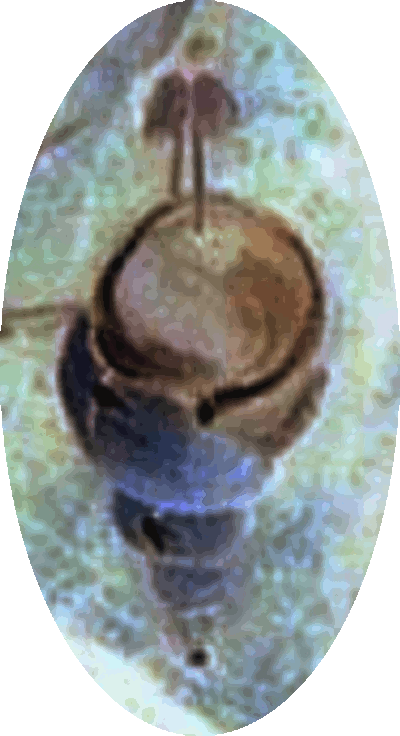
Flushing |
- Watch the water.
Moral of the story!
- They were all members of the same family, why
would you trust ANY of them?
- Very reminiscent of what we have going on today.
- Many feel the claims of Caligula's insanity was
not believable, and was likely a combination of vicious rumors spread by his enemies after he died, and misunderstandings of actions he took which were symbolic but very real statements in his rivalry with the Senate.
- We shall have to wait and see what our president
is really doing but the Old Masters artwork is
incredibly revealing.
|
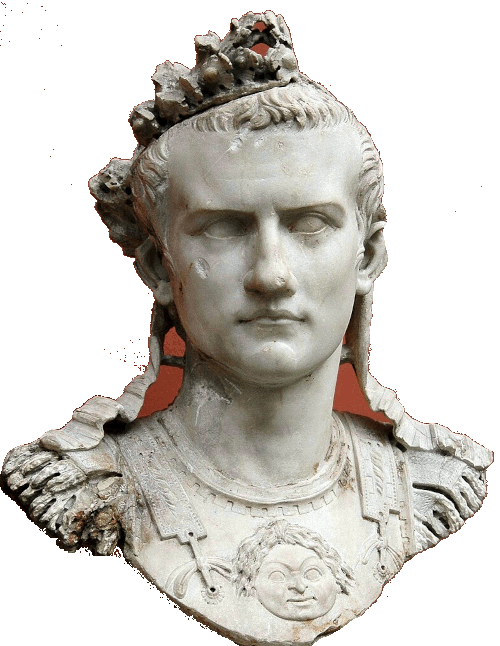
Caligula in stone |
|

